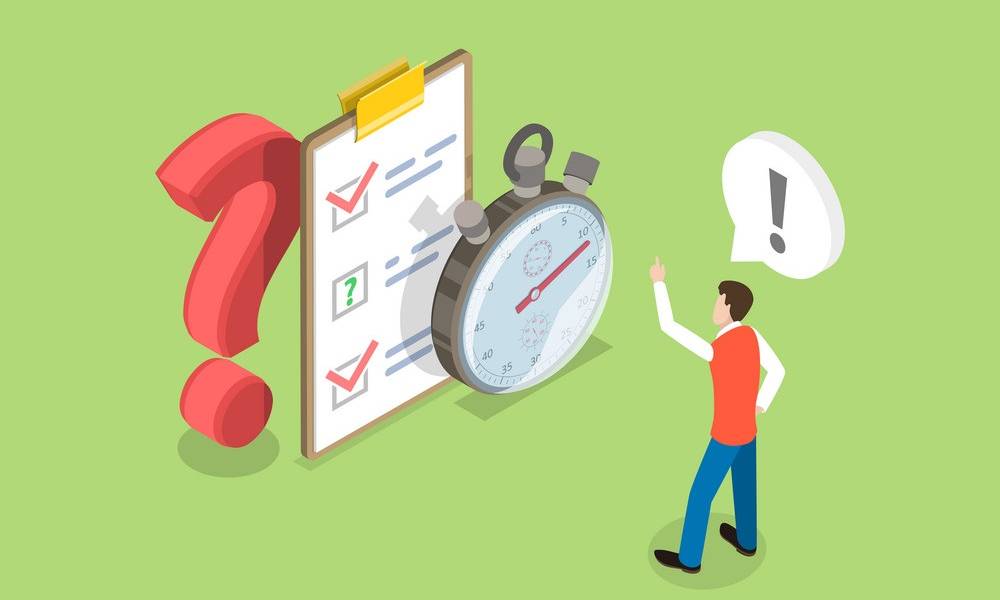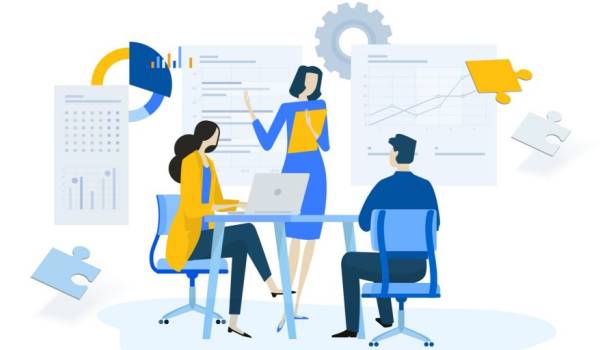
Hotel Room Pricing Strategy and Tactics Information
This course is for mid managers, hotel managers, and front office managers, operating in 50+ rooms hotels who have had limited exposure to the practice of hotel revenue management. Understand hotel room pricing and successful pricing strategies.
Pricing hotel rooms can be difficult but getting price right is fundamental for good hotel revenue management. On this course you will learn how to set prices, conduct value assessments and learn how to create a realistic hotel room pricing strategy.
You will consider how the basic concepts underlying hotel room pricing can be applied to pricing across other revenue streams. You will also learn about long-term pricing and tactical pricing.
What topics will you cover?
- Learn about how to set prices, and use price fences to distinguish one rate from another.
- Conduct a value assessment for your property and establish a realistic price positioning strategy for your hotel.
- Learn about the key elements of a successful long-term pricing strategy, and when to leverage tactical pricing for a short-term, immediate revenue impact.
What will you achieve?
- Use price to manage supply and demand.
Explain the different approaches that a hotel can use to price room inventory.
Use rate fences in rooms inventory pricing.
Analyze a hotel’s competitive position. - Differentiate pricing strategy and tactical pricing.
Hotel Room Pricing Strategy and Tactics Amenities
- Smart Board
- Wi-Fi
- Audio Equipment
- Digital Projectors
- Accessible Location
- Air-conditioned
- Tea Room
- An Efficient Staff
Hotel Room Pricing Strategy and Tactics FAQ
What is hotel revenue management?
Hotel revenue management is the practice of optimizing a hotel's pricing and inventory to maximize revenue and profitability. It involves setting room prices, managing availability, and implementing strategies to attract the right guests at the right time.
Why is revenue management important for hotels?
Revenue management is crucial for hotels because it helps them achieve the right balance between occupancy and room rates. This optimization ensures that hotels maximize their revenue and profitability.
What are some common revenue management strategies for hotels?
Common strategies include dynamic pricing, demand forecasting, length-of-stay controls, overbooking, and distribution channel management.
How do hotels determine room prices?
Room prices are determined based on various factors, including demand, competition, historical data, market conditions, and guest segmentation. Revenue managers use pricing algorithms and software to set the optimal rates.
What is the role of technology in hotel revenue management?
Technology plays a significant role in revenue management, with many hotels using sophisticated revenue management systems (RMS) and channel management tools to make data-driven decisions.
How can I learn more about hotel revenue management?
You can explore online courses, like the one you mentioned, to learn more about hotel revenue management. Additionally, there are many books, webinars, and industry conferences dedicated to the topic.
What are some key performance indicators (KPIs) used in hotel revenue management?
Common KPIs include:
- ADR (Average Daily Rate): The average rate charged for rooms.
- RevPAR (Revenue Per Available Room): Total revenue divided by the number of available rooms.
- Occupancy Rate: The percentage of rooms that are occupied.
- GOPPAR (Gross Operating Profit Per Available Room): The profit generated per available room.
How does seasonality impact hotel revenue management?
Seasonality plays a significant role in hotel revenue management. Prices may vary based on factors like holidays, special events, and peak tourism seasons. Revenue managers adjust their strategies to account for these fluctuations.
What is the difference between revenue management and yield management?
While the terms are often used interchangeably, yield management traditionally focuses on maximizing revenue for perishable goods (like hotel rooms), while revenue management has a broader application and can be used in various industries.
How can hotels manage overbooking effectively?
Effective overbooking strategies involve predicting cancellations and no-shows accurately and setting a reasonable overbooking limit to maximize revenue without causing guest dissatisfaction. It's a delicate balance and is often aided by technology and historical data analysis.
Hotel Room Pricing Strategy and Tactics Curriculum
Module 1: Introduction to Hotel Revenue Management
• The importance of revenue management in the hotel industry • Historical perspective and evolution of revenue management • Key revenue management concepts and terminology
1.1 The Importance of Revenue Management
- Understanding the significance of revenue management in the hospitality industry.
- How revenue management contributes to a hotel's financial success.
1.2 Historical Perspective and Evolution
- A brief history of revenue management and its evolution in the hotel sector.
- Key milestones and developments in the field.
1.3 Core Revenue Management Concepts and Terminology
- Introduction to fundamental revenue management terms and concepts.
- Building a foundation for the rest of the course.
1.4 Quiz and Self-Assessment
- A quiz to test your understanding of the concepts covered in Module 1.
- Self-assessment to ensure comprehension of the introductory material.
1.5 Additional Resources and Further Reading
- Recommended readings, articles, and resources for a deeper understanding of the topic.
- Links to relevant industry websites and publications.
Module 2: Demand Forecasting and Data Analysis
• Collecting and analyzing historical data • Forecasting demand and occupancy • Market segmentation and guest profiling
2.1 Introduction to Demand Forecasting
- The role of demand forecasting in revenue management.
- Understanding the importance of accurate forecasts.
2.2 Data Collection and Management
- Methods for collecting and managing historical data.
- Best practices for maintaining a data repository.
2.3 Forecasting Methods and Models
- Introduction to various forecasting models and methods.
- How to select the right forecasting technique for different scenarios.
2.4 Market Segmentation
- Exploring the concept of market segmentation.
- Segmenting guests based on different criteria and characteristics.
2.5 Guest Profiling
- Developing guest profiles for targeted marketing and pricing strategies.
- Utilizing guest data to enhance revenue management decisions.
2.6 Quiz and Self-Assessment
- A quiz to evaluate your understanding of demand forecasting and data analysis concepts.
- Self-assessment exercises to apply what you've learned to real-world scenarios.
2.7 Additional Resources and Further Reading
- Recommended readings, case studies, and resources to deepen your knowledge.
- Links to relevant industry reports and data analysis tools.
Module 3: Pricing Strategies and Inventory Management
• Pricing psychology and consumer behavior • Setting room rates and pricing structures • Dynamic pricing and rate optimization • Managing room availability • Length-of-stay controls and restrictions
3.1 Pricing Psychology and Consumer Behavior
- Exploring the psychology of pricing and its impact on consumer decisions.
- Understanding how consumer behavior influences pricing strategies.
3.2 Setting Room Rates and Pricing Structures
- Factors to consider when setting room rates.
- Different pricing structures and their advantages.
3.3 Dynamic Pricing and Rate Optimization
- Introduction to dynamic pricing and its benefits.
- Strategies for real-time rate adjustments to optimize revenue.
3.4 Managing Room Availability
- The importance of managing room availability in revenue management.
- Techniques to ensure optimal occupancy.
3.5 Length-of-Stay Controls and Restrictions
- Implementing length-of-stay controls to maximize revenue.
- Utilizing booking restrictions to align with pricing strategies.
3.6 Practical Pricing Exercises
- Hands-on exercises and case studies to apply pricing strategies.
- Analyzing real-world scenarios to set rates and manage inventory.
3.7 Quiz and Self-Assessment
- A quiz to evaluate your understanding of pricing strategies and inventory management.
- Self-assessment activities to reinforce learning.
3.8 Additional Resources and Further Reading
- Recommended readings, industry reports, and resources for in-depth exploration.
- Links to tools and software for dynamic pricing and inventory management.
Module 4: Distribution, Channel Management, and Technology
• Online distribution channels and OTAs (Online Travel Agencies) • Direct bookings and website management • Channel management and pricing consistency • The role of technology in revenue management • Introduction to Revenue Management System
4.1 Online Distribution Channels and OTAs (Online Travel Agencies)
- Exploring the landscape of online distribution channels.
- Understanding the role of Online Travel Agencies (OTAs) in hotel distribution.
4.2 Direct Bookings and Website Management
- Strategies for maximizing direct bookings through your hotel's website.
- Effective website management to enhance user experience and conversion.
4.3 Channel Management and Pricing Consistency
- Techniques for managing various distribution channels.
- Ensuring pricing consistency across all booking platforms.
4.4 The Role of Technology in Revenue Management
- The impact of technology on revenue management practices.
- Leveraging technology to streamline processes and make data-driven decisions.
4.5 Introduction to Revenue Management Systems (RMS)
- Understanding the function and benefits of Revenue Management Systems.
- Exploring popular RMS software and their features.
4.6 Case Studies and Practical Application
- Analyzing real-world case studies related to distribution and channel management.
- Hands-on exercises to practice using Revenue Management Systems.
4.7 Quiz and Self-Assessment
- A quiz to evaluate your understanding of distribution, channel management, and technology concepts.
- Self-assessment activities to apply your knowledge to practical scenarios.
4.8 Additional Resources and Further Reading
- Recommended readings, articles, and resources for deeper insights.
- Links to industry publications and technology providers.
Module 5: Overbooking, Risk Management, and Legal Considerations
• Understanding overbooking and its benefits • Overbooking strategies and techniques • Mitigating the risks of overbooking • Ethical practices in revenue management • Legal considerations, including rate parity and compliance
5.1 Understanding Overbooking and Its Benefits
- Introduction to the concept of overbooking and why it is practiced.
- The potential benefits and drawbacks of overbooking for hotels.
5.2 Overbooking Strategies and Techniques
- Different overbooking strategies and best practices.
- Methods to optimize overbooking while minimizing negative guest experiences.
5.3 Mitigating the Risks of Overbooking
- Identifying potential risks associated with overbooking.
- Developing contingency plans and strategies to handle overbooking situations effectively.
5.4 Ethical Practices in Revenue Management
- The importance of ethical considerations in revenue management.
- Examples of ethical and guest-centric practices in the industry.
5.5 Legal Considerations, Including Rate Parity and Compliance
- Understanding legal aspects related to pricing and distribution.
- Compliance with rate parity agreements and industry regulations.
5.6 Case Studies and Practical Application
- Analyzing real-world case studies related to overbooking and risk management.
- Practical exercises to develop ethical and legal revenue management strategies.
5.7 Quiz and Self-Assessment
- A quiz to assess your understanding of overbooking, risk management, ethical practices, and legal considerations.
- Self-assessment activities to apply ethical and legal principles to revenue management scenarios.
5.8 Additional Resources and Further Reading
- Recommended readings, legal guidelines, and resources for a deeper understanding of the legal aspects.
- Links to industry reports and articles on ethical revenue management practices.
Module 6: Performance Metrics and KPIs
• Key performance indicators in hotel revenue management • Calculating and interpreting ADR, RevPAR, Occupancy, and others • Performance benchmarking and reporting
6.1 Key Performance Indicators in Hotel Revenue Management
- Introduction to the concept of Key Performance Indicators (KPIs).
- Identifying and understanding the most important KPIs in revenue management.
6.2 Calculating and Interpreting ADR, RevPAR, Occupancy, and Others
- In-depth exploration of key metrics, including Average Daily Rate (ADR), Revenue Per Available Room (RevPAR), and Occupancy Rate.
- Practical examples and exercises for calculating and interpreting these metrics.
6.3 Performance Benchmarking and Reporting
- The significance of benchmarking for assessing performance.
- Developing effective reporting methods for tracking and improving revenue performance.
6.4 Case Studies and Practical Application
- Analyzing real-world case studies related to performance metrics and KPIs.
- Practical exercises for calculating and interpreting performance data.
6.5 Quiz and Self-Assessment
- A quiz to evaluate your understanding of performance metrics and KPIs.
- Self-assessment activities to apply your knowledge to revenue management scenarios.
6.6 Additional Resources and Further Reading
- Recommended readings, industry reports, and resources for a deeper understanding of performance measurement and benchmarking.
- Links to industry publications on revenue management KPIs and benchmarking practices.
Module 7: Seasonality, Special Events, and Case Studies
• Handling seasonality in pricing and demand • Managing pricing during special events and holidays • Real-world case studies in hotel revenue management
7.1 Handling Seasonality in Pricing and Demand
- Understanding the concept of seasonality in the hotel industry.
- Strategies for adjusting pricing and demand forecasting during different seasons.
7.2 Managing Pricing During Special Events and Holidays
- Approaches to pricing and revenue management for special events and holidays.
- Preparing for high-demand periods and optimizing revenue opportunities.
7.3 Real-World Case Studies in Hotel Revenue Management
- In-depth analysis of real-world case studies in revenue management.
- Examining successful strategies and lessons learned from different scenarios.
7.4 Practical Exercises for Seasonal Pricing
- Hands-on exercises for implementing seasonal pricing strategies.
- Applying demand forecasting techniques to manage pricing during specific seasons.
7.5 Quiz and Self-Assessment
- A quiz to assess your understanding of seasonality, special events, and case study concepts.
- Self-assessment activities to apply your knowledge to practical scenarios.
7.6 Additional Resources and Further Reading
- Recommended readings, industry reports, and resources for a deeper understanding of seasonality and special event pricing.
- Links to publications featuring case studies in hotel revenue management.
Module 8: Future Trends and Industry Insights
• Emerging trends in revenue management • The impact of technology and AI in the industry • Preparing for the future of hotel revenue management
8.1 Emerging Trends in Revenue Management
- Identifying and understanding the latest trends in hotel revenue management.
- How emerging trends impact pricing strategies and demand forecasting.
8.2 The Impact of Technology and AI in the Industry
- Exploring the role of technology and artificial intelligence (AI) in revenue management.
- Case studies and examples of technology-driven revenue management practices.
8.3 Preparing for the Future of Hotel Revenue Management
- Strategies for staying ahead in the ever-evolving hotel industry.
- Preparing for future challenges and opportunities in revenue management.
8.4 Industry Expert Interviews and Insights
- Interviews with industry experts and thought leaders.
- Gaining insights into their experiences and predictions for the future.
8.5 Quiz and Self-Assessment
- A quiz to evaluate your understanding of future trends and industry insights.
- Self-assessment activities to apply your knowledge to future-focused revenue management scenarios.
8.6 Additional Resources and Further Reading
- Recommended readings, industry reports, and resources for exploring emerging trends.
- Links to articles and publications discussing the impact of technology and AI in revenue management.





